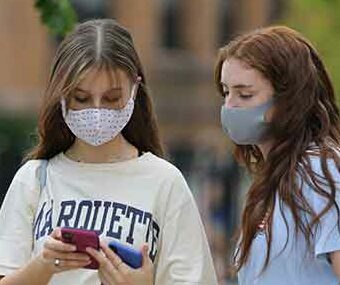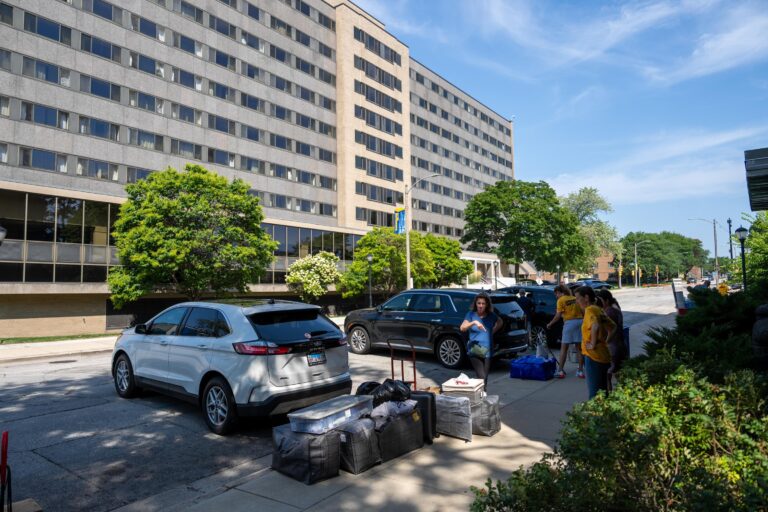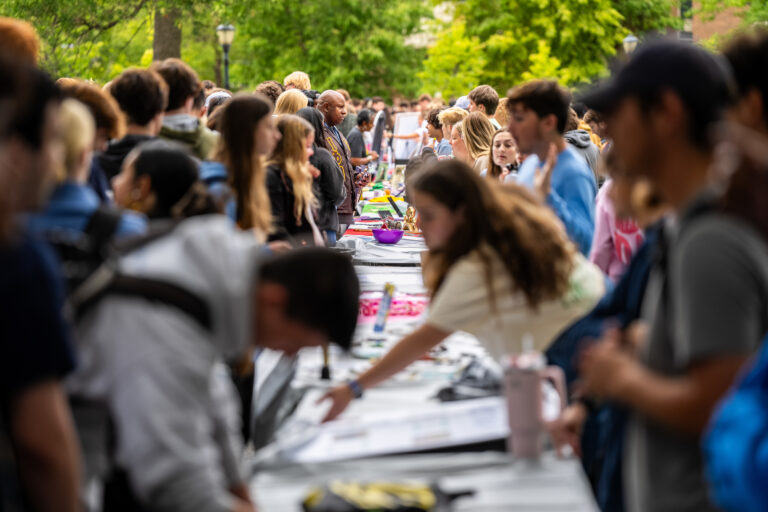Dear Marquette undergraduate, graduate and professional students,
Happy first week of classes! Here’s a checklist of helpful reminders to help mitigate the spread of COVID-19 as you navigate the first few days of this semester, which is sure to be unlike any other.
- Complete COVID Cheq daily
Complete the online “COVID Cheq” symptom screening each morning. It’s a short series of questions that you’ll receive daily reminders about via email. All students, faculty and staff who are on campus this semester need to complete this before coming to campus each day. Make sure to bring your phone (or device on which you completed COVID Cheq) with you to campus, as you may be required to show your green COVID Cheq pass before entering some areas / buildings on campus. See guidance for those without a home computer, smart phone or printer. Visit the COVID Cheq webpage for more information and a series of FAQs. You can also email COVIDCheq_Info@marquette.edu. - Know what to do if you’re sick
Stay in your place of residence and seek medical advice by calling Marquette University Medical Clinic at 414-288-7184. Do not go to class, work or other public spaces until you receive advice regarding testing and isolation. Visit the COVID-19 website for additional information. - Mask up!
Remember to wear a mask or cloth face covering when in public or around other people. All students were provided a mask in your welcome kit.Watch: Why I wear a mask: an important message for students, by students - Make sure you received a welcome kit
All students will be provided with a “welcome kit” this semester, which includes a mask, hand sanitizer and a thermometer. Didn’t receive yours yet? Click here to find out where to pick one up. - Access cleaning wipes and sanitizer at locations across campus
Wipes are provided in residence hall rooms, classrooms, the Alumni Memorial Union, most colleges offices, from “Make the Difference” student ambassadors and at various other locations around campus. - Take note of study spaces available around campus
This semester, a number of classrooms and other spaces are reserved around campus for students to use for virtual (synchronous) learning or as study spaces. These rooms are available on a first come, first served basis, although important guidelines exist for use of the spaces. Visit the Virtual Learning and Study Spaces page for more information. If you have to navigate between online and in-person classes, please be mindful that study space is limited. Plan ahead and allow yourself extra time to find a space to study and avoid being late.
Here are a few key things to consider when planning your day:
- Arrive early to classes
Due to new protocols, students are advised to arrive to class early this first week to allow time to review any new rules or processes. - Eat before or after class, but not during
Because masks are required, eating will not be allowed in classrooms. Drinking water is permitted, but please use a straw/spigot water bottle to limit the amount of time your mask is off in a public setting. - Remember to hydrate!
Bottle fillers are still operational around campus; however, drinking fountains are not. - Expect lines and longer wait times during these first few weeks
While we all adjust to these new routines, we anticipate some longer lines or wait times (in dining halls, entering building/classrooms, etc.) Try to give yourselves and one another grace during these first few weeks. We’re all going through this transition together — your flexibility and patience will make the transition easier on everyone. - Don’t forget your computer / device and charger
Many courses are entirely online, or have an online component. Be prepared and bring your laptop, tablet or other device when you come to campus.
Last but certainly not least, we expect all students to uphold our Community Pledge. All our actions matter. We all desire a similar outcome — to have a full semester where we can teach, live, learn and study as a Marquette community. But if we as a community don’t follow these simple expectations, we may not be able to stay on campus. It’s as simple as that. If you witness a member of the university community failing to uphold the standards laid out in the community pledge, there is an online reporting mechanism, and students found in violation will be referred to the Student Conduct process.
WE make the difference. Together.
Dr. Xavier A. Cole
Vice President for Student Affairs
Chair, Marquette COVID-19 Response Team



